
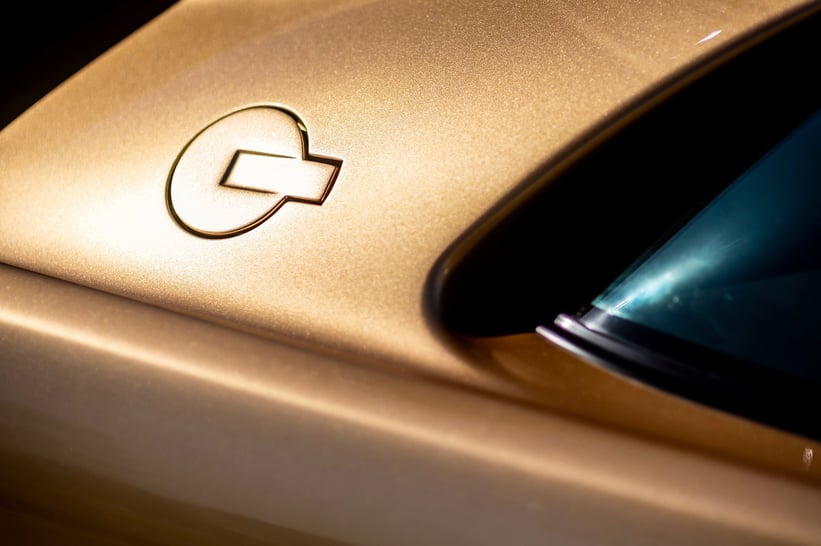
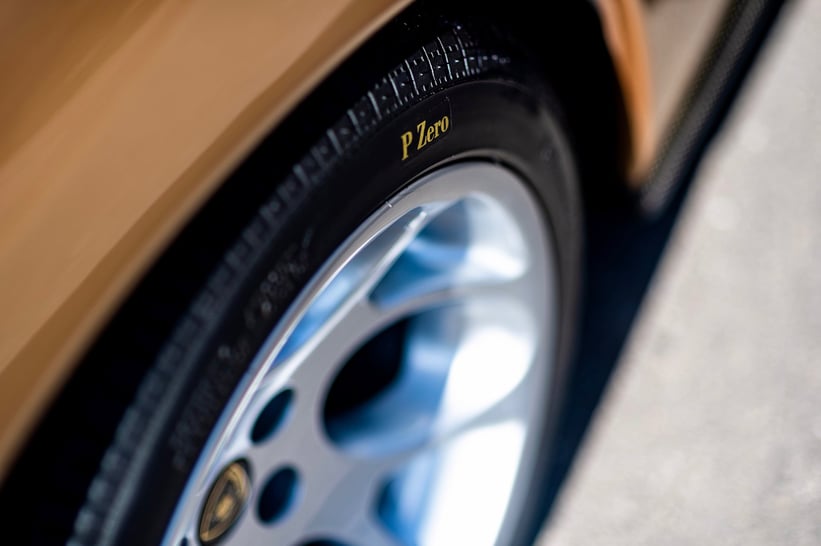
Updates are exactly that. Rarely are they more than a footnote to an original, which is what makes the Lamborghini Diablo VT 6.0 SE such a unique sequel; it’s the Godfather Part II of supercars.


The original 1990 Diablo was an ace card at Top Trumps, with its 5.7-litre V12 producing 485bhp and a 202mph top speed. Plus, it looked bolder than anything on the road since… well, the Countach. But from behind the wheel, it had some major faults. It was difficult to drive and even more difficult to see out the back of. And the chances of it reaching your destination without an electrical failure were 50/50.



Revisions were made, each offering improvement, but when Audi took the bull brand by the horns in 1998 it directed its brains trust to give the devil car a complete overhaul. The result was the VT 6.0-litre; it looked similar, but was entirely new under the metal. And boy did it make a difference. It was more refined, much easier to drive and Teutonic in its reliability.


Overseen by chief designer Luc Donckerwolke, who’d worked at Skoda and Audi – notably on the Ingolstadt team’s R8 Le Mans racer – the new VT 6.0 pushed the power up to 550bhp and torque to 620Nm. It also benefited from four-wheel drive. The styling was updated inside and out, with a mostly carbon body and revised front fascia that featured two large air intakes – similar to those later seen on the Murciélago.
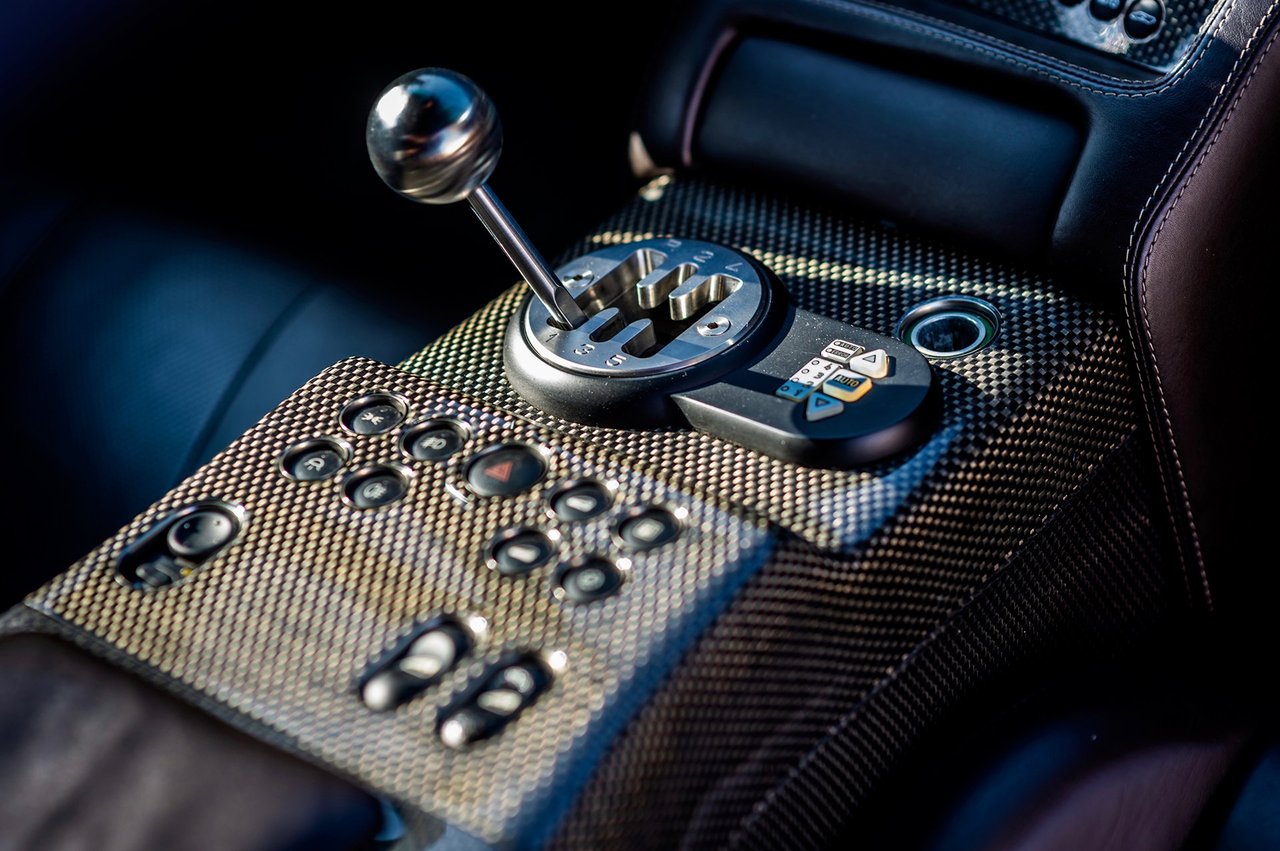
The bodywork was smoothed and finessed, and the rear wing was binned (although still available as an option). Gone were the pop-up headlamps; in came bigger, repositioned indicators. Five-hole ‘phone-dial’ wheels, 18 inches in diameter, were a subtle nod to the car’s attention-seeking ancestor, the Countach.



Inside, the power-adjustable seats were more supportive and comfortable, the air-conditioning worked and the pedals were no longer solely operable by a principal ballerina. The driving experience was vastly improved by the silkily enlarged displacement, 11cm wider front track, Brembo brakes, new suspension, carbon-fibre chassis reinforcement, a very useful Ohlins front lifter – and electrics that worked.


This was an exercise in reassuring Lamborghini appassionata that not only did Audi AG respect and understand the DNA of the raging bull; it could take those ingredients and greatly improve the final product.


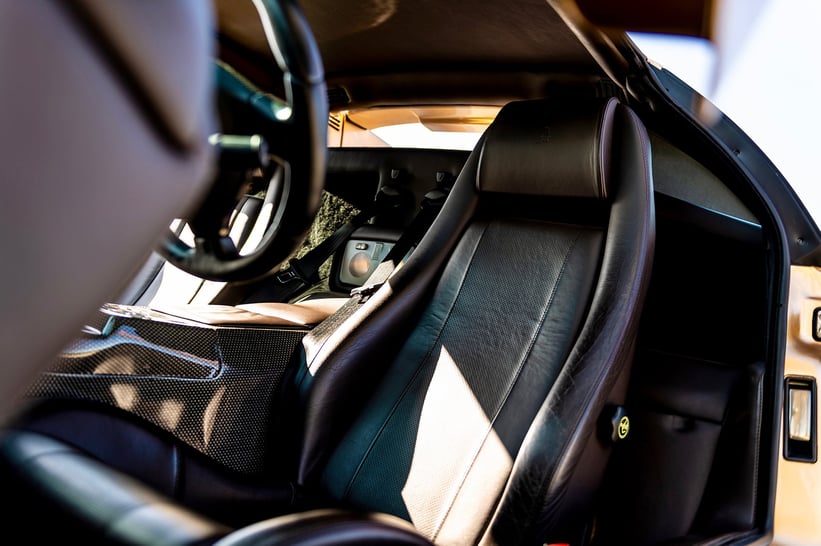
For 2001, the Diablo’s final year of production, Lamborghini made just 42 SE versions of the 6.0-litre. There were only two colour options: Oro Elios gold metallic, representing sunrise; or the colour-shifting bronze/maroon Marrone Eklipsis, representing sunset. A total of 21 cars were prepared in each colour. Additional changes included a new magnesium intake manifold, short-gear manual transmission, special upholstery, Lamborghini-badged brake calipers, enhanced carbon-fibre trim and a state-of-the-art Alpine DVD navigation and audio system.

The car you see here, with the red number plate, is No.3 of 21, while the yellow-plated one is No.11. The former is currently for sale with Arts & Revs in Luxembourg.

It’s in mint condition, with 13,000km on the clock. Arts & Revs founder Florent Moulin is a lifelong Lamborghini fan and collector, and he’s taken on this machine because it’s the absolute zenith of Sant’Agata’s limited-edition output. “Cut me and I bleed Lamborghini, but as cars to drive on the limit, I have to admit they were rarely very good,” he says. “But the 6.0 Diablo certainly is. It showed what Audi could do; it fulfilled the potential of the Diablo. It’s completely re-engineered. The 5.7 was a frustrating car, while this is so easy to drive.

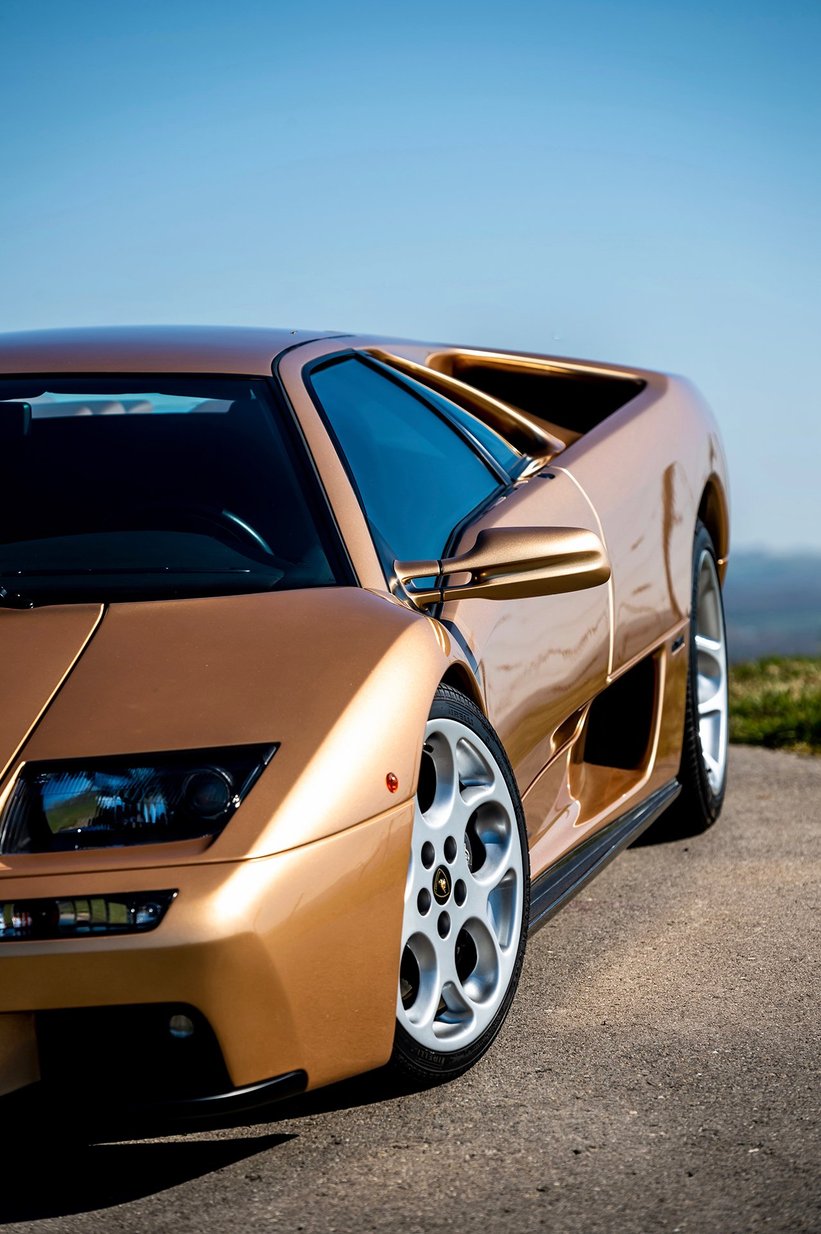
“The chassis is precise and the brakes are fantastic. In fact, the 2001 car is more fun to drive than the Murciélago, which replaced the Diablo that same year. The rigidity of the final generation of Diablo is so much better than before; Audi did a remarkable job with this car in keeping the old legend of Lamborghini alive. There’s a direct line between the Diablo 6.0 and the Miura SV. They, plus the Countach LP400 Periscopo, are the most legendary Lamborghinis ever made.”

Collectors can relate to Florent, because he’s a collector and racer himself first and foremost. His standing in the rare road and racing-car world gives him first eyes on some of the most historic and exclusive machines to come to market in Europe. A fan of endurance race cars in particular, Florent has previously sold a Sauber C9, an Audi R8 LMP car, a Ford GT MkII and a Ferrari 333 SP: “Quality for me is everything,” he states. His strength of feeling for this 6.0 SE is partly explained by the fact that the very first car to fire his passion was the Lamborghini Miura.
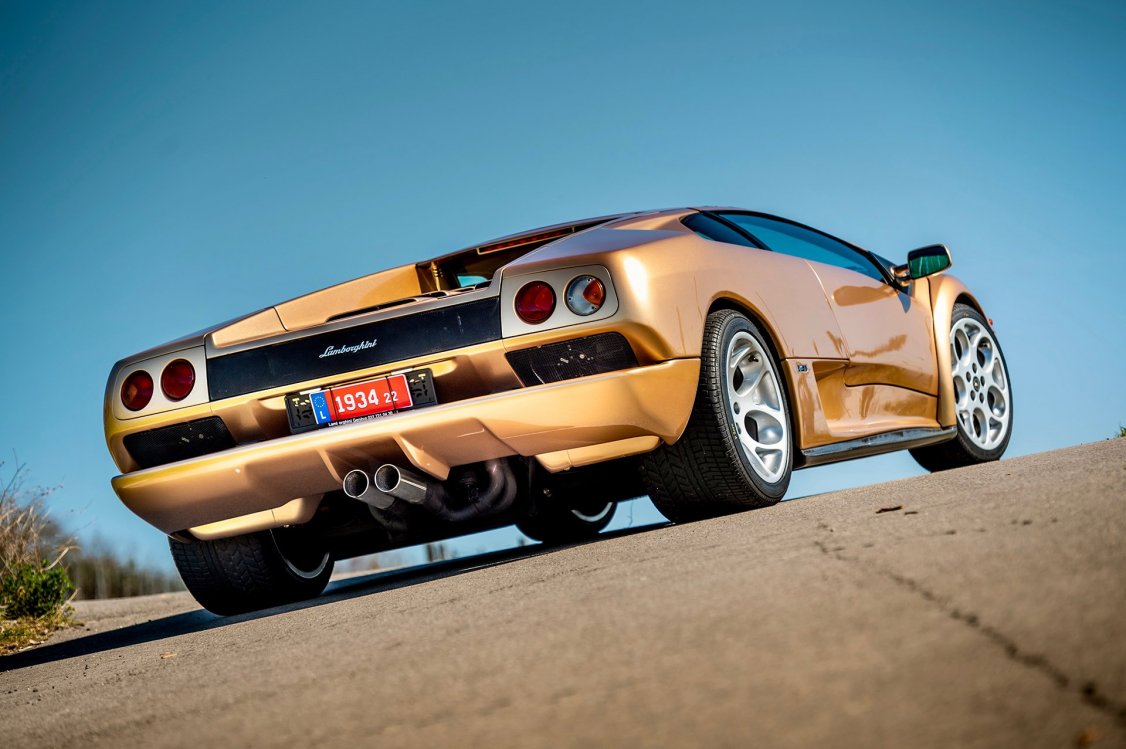
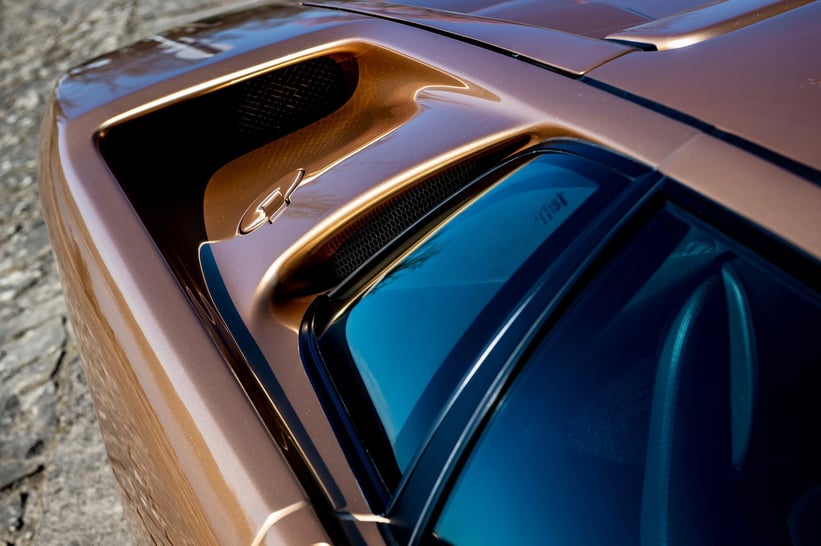

For the photos you see here, Florent corralled a friend – owner of SE no.11 – to join him on a blast around the Luxembourgian countryside. “We are well positioned,” Florent notes of his dealership, “in being 10 minutes from the airport and surrounded by wonderful roads, beautiful fields and high-quality places to stay and dine.”


No.11 has accrued just 4,200km and was previously owned by 1996 and 2005 Superbike World Champion Troy Corser. Both cars are in much the same condition as they left the factory in 2001. No.3, the red-plated car for sale, was delivered new to Switzerland via Garage Affolter in Porrentruy, the official dealer. It was acquired by its third owner – a distinguished collector – in 2015. Most of the miles were accrued under the first Swiss owner, and it has been used sparingly since. The car is still equipped with Pirelli P Zeros from 2008, and these will be replaced with new bespoke boots before handover. A comprehensive service has just been completed.
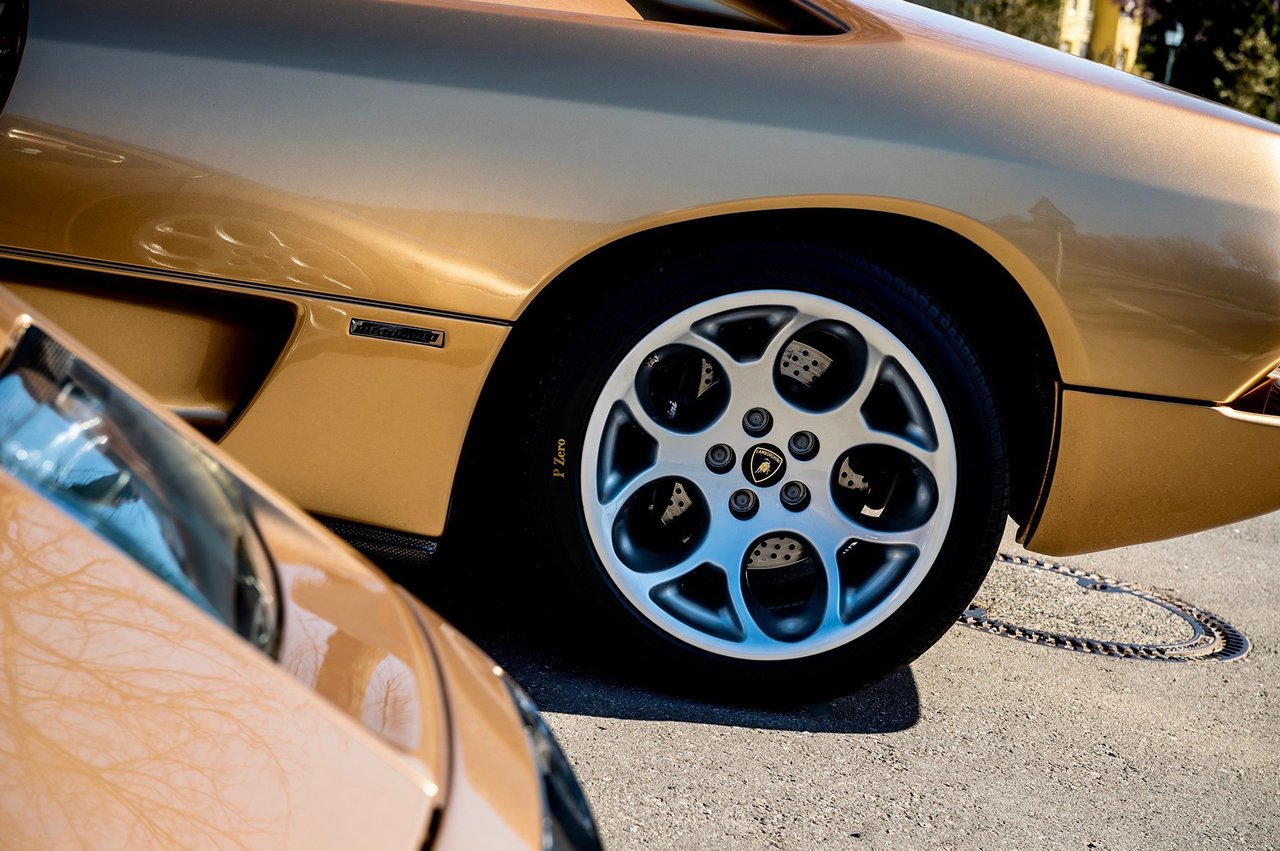
Considered by many to be the last ‘true’ Lamborghini, the Diablo VT 6.0 SE represents not only one of the finest and most authentic Lamborghini road cars of all time, but potentially one of the best investments, too. With just 42 cars in existence – and only 21 in this beautiful metallic gold – values are in the ascendant and stand to continue on that path, rapidly, for this is perhaps the rarest and most striking exotic of the early Noughties and among the most desirable Lamborghinis in the company’s 58-year history.
Photos: Stéphane Sasso © 2021






















































